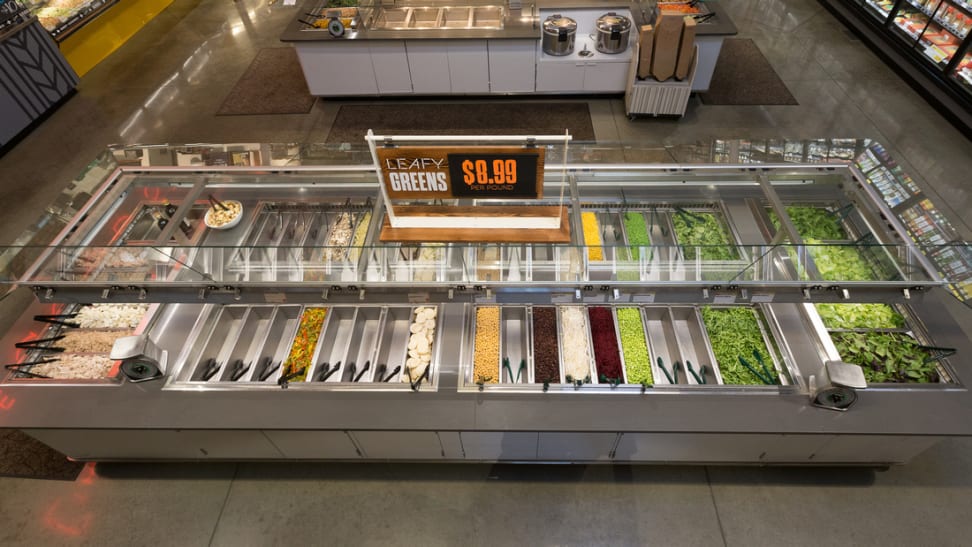Whole Foods Imagines a World Without Bees
Turns out, the salad bar would be a lot less appetizing.
 Credit:
Whole Foods Market
Credit:
Whole Foods Market
Recommendations are independently chosen by Reviewed's editors. Purchases made through the links below may earn us and our publishing partners a commission.
By now, you've probably heard that honeybees are dying off in droves. It's a serious issue, since we rely on bees to pollinate virtually all of our food crops. Now, Whole Foods Market is showing how it could affect us on an everyday level—at the salad bar.
It turns out that a salad bar without bees is a pretty sad affair. Just about anything that's green is gone. Whole Foods says that avocados, tomatoes, and berries would be absent, along with all dairy products. That's because pollination is also key to keeping cattle fed.
If you like nuts, you can say goodbye to them too. Almonds, macadamia nuts, and sunflower seeds would all disappear. In total, only 40 percent of Whole Foods' salad bar options would remain, as pollination is required for over 100 major crops in the U.S.
{{ photo_gallery name="New Gallery" }}
Fast Company reports that this sad little salad bar is part of Whole Foods' Share the Buzz and Pollinators campaigns, which the company is using to raise awareness of the plight of honeybees and the impact they have on our food. Whole Foods encourages its shoppers to help bees by planting wildflowers, buying organic, and avoiding the use of pesticides.
Sure, the grocery chain is also using these campaigns to encourage the purchase of select Whole Foods products, but it's making a valid point. Bees and other pollinators are of critical importance to our food chain, and it's time we start treating them that way.
Related Video
{{brightcove '4113455225001'}}

